December 12 on the Roman Catholic Calendar is the feast day in honor of the Virgin of Guadalupe, we retell the story connecting to the Aztec (also called Mexica) Divine Earth Mother Tonantzin, part of the Spanish colonial push to capture the Indigenous spirit of Mexico. An estimated two million people pilgrimage to Mexico City to observe the festival every year. The number of pilgrims over the entire year exceeds 10 million, second only to the Vatican as the most visited Catholic site in the world. See Part II of the story.
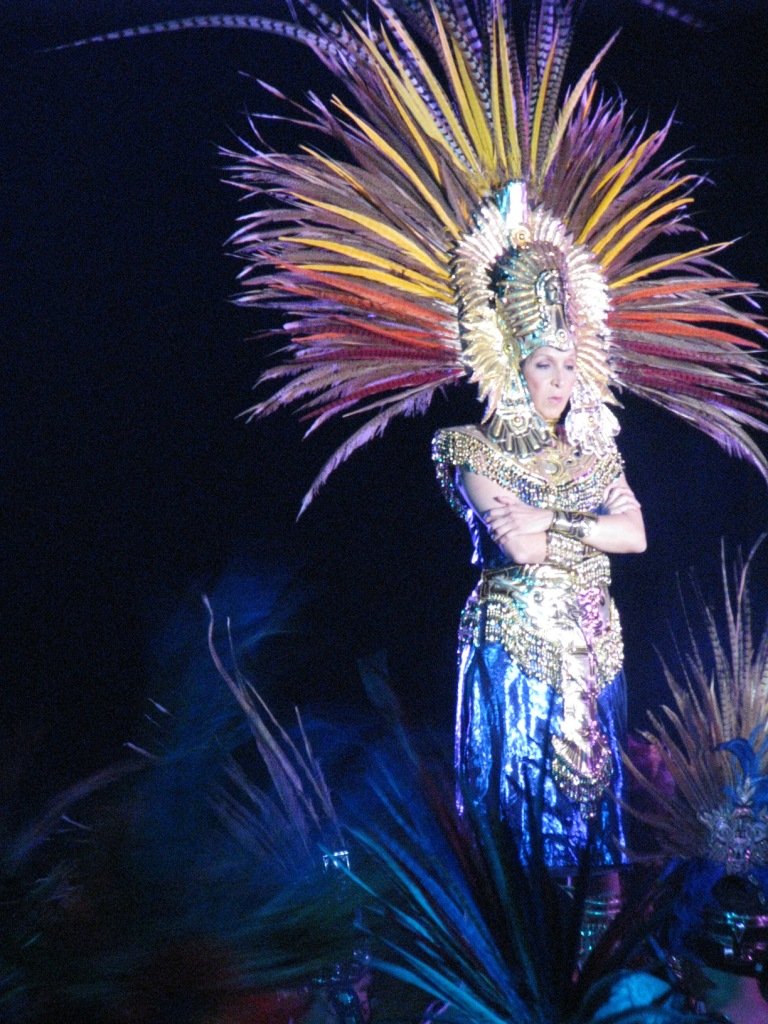

Divine Mexica Earth Mother Tonantzin Blesses the Catholics
The legend of Guadalupe, called Nican Mopohua (Here It Is Told), centers around an Indian peasant, from the hillside Mexican village of Tepeyac, named Cuahtlatoczin (“Eagle Speaks”). A Spanish Catholic convert baptized as Juan Diego, he experiences a series of visions of an obscure Aztec goddess Tonantzin (“Our Revered Mother”). Repeated appearances challenge his faith and that of his newly adopted post-Spanish-conquest church, the latter thereafter associating the goddess with adoration of the Virgin Mary. Hence, the story speaks of spiritual conquest and usurpation of an indigenous deity, yet also the assimilation of magic and miracles, becoming an enduring and universal theme of Mexican civilization for four centuries. Performed in Spanish and the Aztec language of Nahuatl, the folkloric story dramatizes the four apparitions of Tonantzin in 1531, leading her adoption into the Catholic faith as the Virgin of Guadalupe.
The following was staged by the Latino Theater Company at the Cathedral of Our Lady of the Angels, in Los Angeles, California on December 8, 2010. Directed by José Luis Valenzuela. Adapted from Nican Mopohua by Evelina Fernández and edited here by Jack Eidt. “La Virgen de Guadalupe-Tonantzin” is played by Suzanna Guzmán. “Juan Diego” is played by Sal Lopez.
STORY: Ch´ol Creation Story: The Origin of Life on Earth
The Danzantes Honor the Four Directions:
East, South, West, and North
The Danzantes dance and honor our Earth Mother, the Aztec goddess, Tonantzin
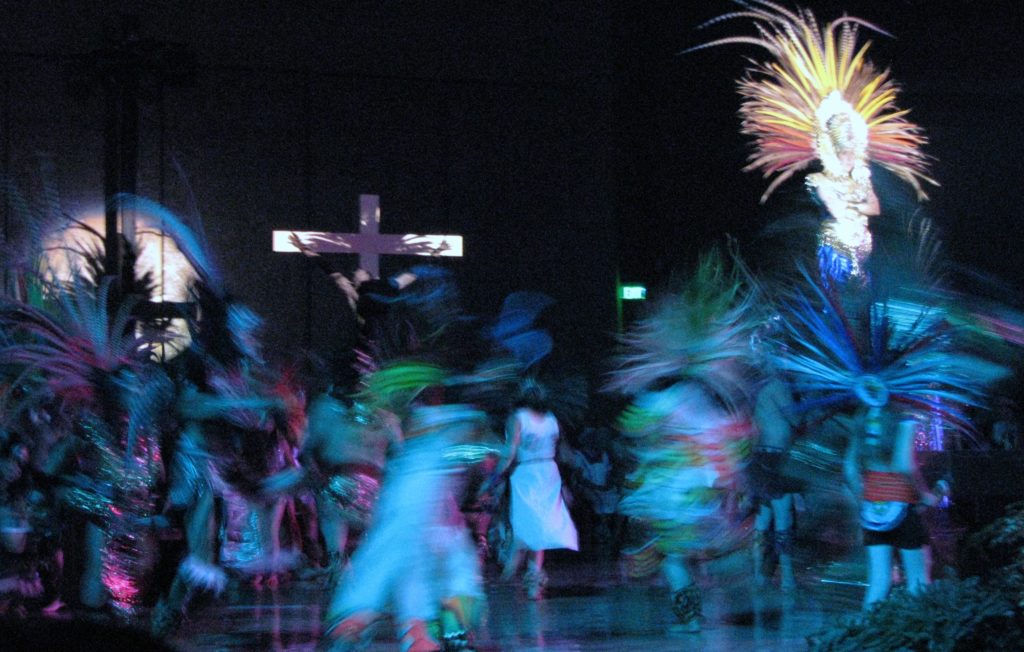

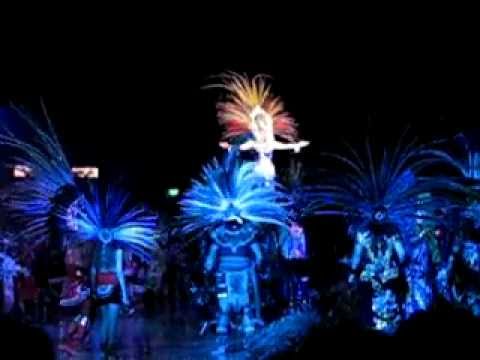
Watch this video on YouTube
In 1531, twelve years after the first arrival of Hernán Cortés and his conquistadores and ten since the fall of the City of Mexico, religious Indian leaders called Tlamantines, contest the teachings of the Spanish clergy. They claim that their gods and beliefs are being taken away.
A few days into the month of December, the Spanish priests convert some Indians, but others refuse. Two of the converts are Cuahtlatoczin (Juan Diego), a humble but respected poor man of the people, and his uncle Tlamantini (Juan Bernardino).
STORY: Yaqui of Mexico: How the Sorcerer Cricket Saved the People
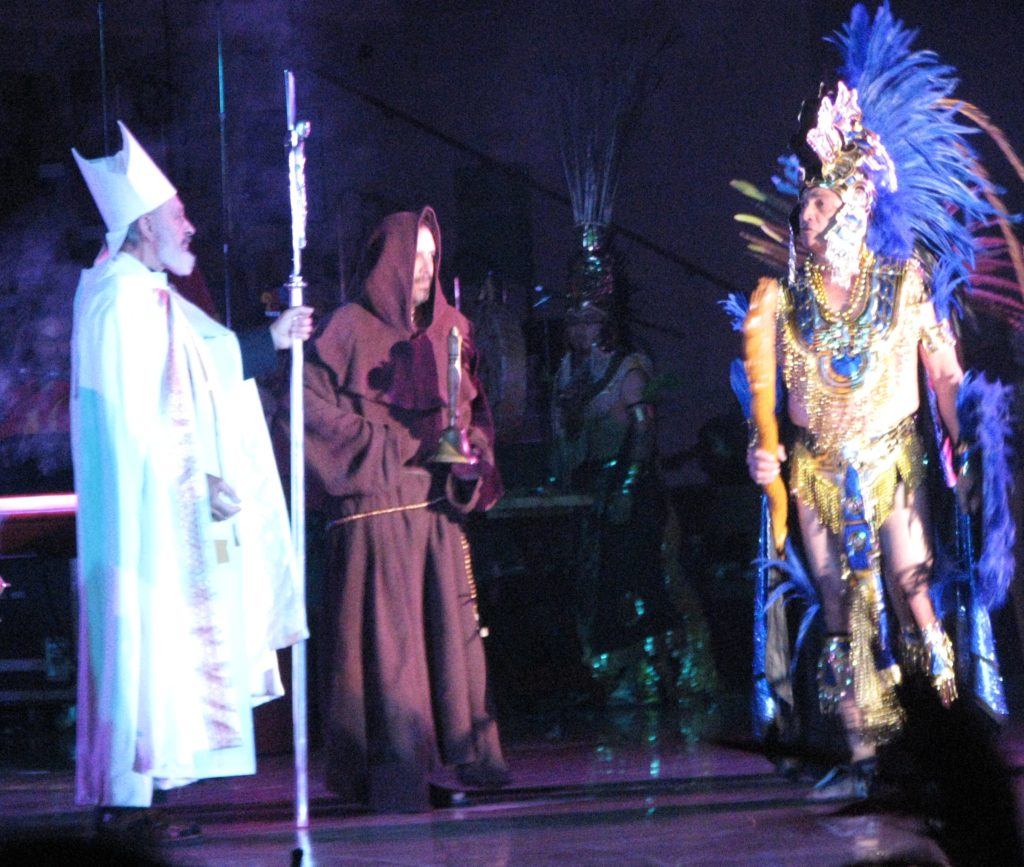

A Crisis of Faith
On the hill at Tepeyac, near Mexico City, at the temple of Tonantzin, Juan Diego professes his faith but questions the hardships of life. He hears singing, like the song of many precious birds; when their voices stop, it seemed the hill answered, soft and delightful. Their songs exceeded that of the coyoltotl and the tzinitzcan and other precious birds. “Perhaps I am dreaming?” Juan Diego muses.
He looks in the direction of the rising sun, where the birds sounded, and the Virgin of Guadalupe appears for the first time. Her radiance shines like precious stones. And the mesquites and nopal cactus seem like emeralds. Their trunks, their thorns, shine like gold. She has chosen him as her messenger and asks him to communicate to the Bishop, Don Fray Juan de Zumárraga. She asks that a church be built in her honor on the hill where she has appeared.
“Because I am truly your compassionate mother, yours and of all the people who live together in this land, and of all the other people of different ancestries, those who love me, because there I will listen to their weeping, their sadness, to remedy, to cleanse and nurse all their different troubles, their miseries, their suffering.”
STORY: Journey of Grandmother Rain – World Creation of the Wixáritari (Huicholes)
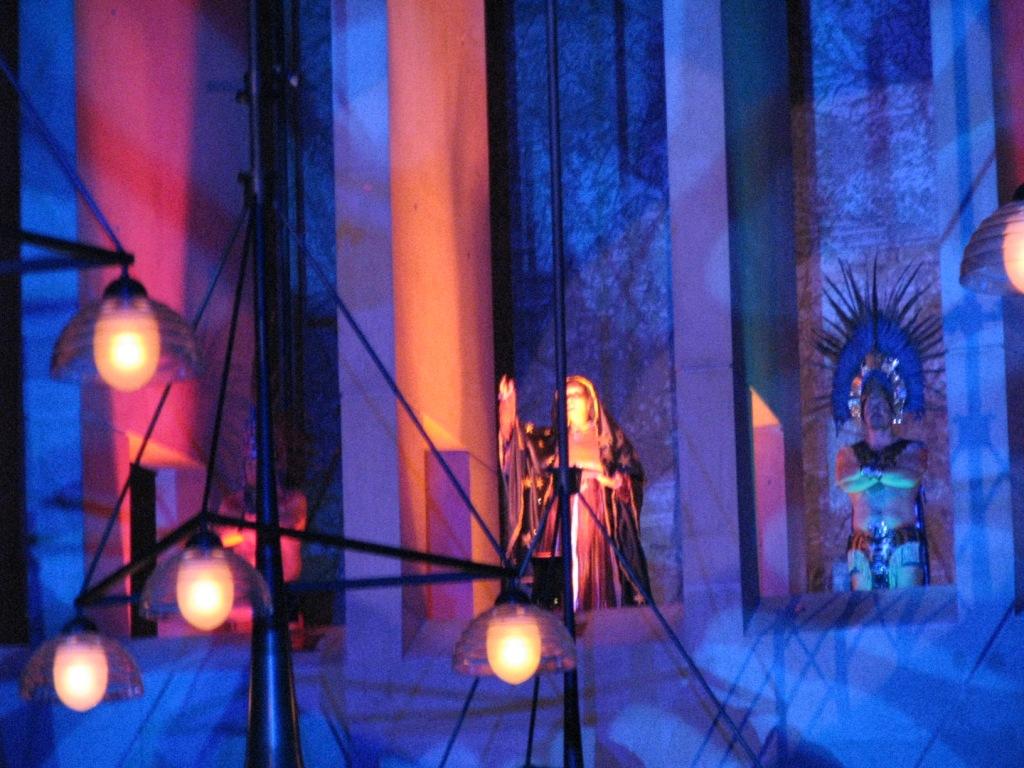

Juan Diego went down the causeway to Mexico City but is driven away by the Spanish friars, not allowed to speak with the Bishop. When the Bishop learns of this curious fellow, he orders him be brought back.
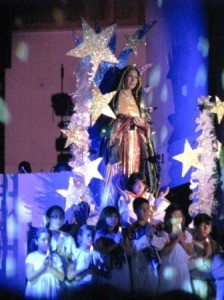

The Virgin appears to Juan Diego a second time. He tells her he is not worthy.
“Because I am really just a man from the country, I am a porter’s rope, I am a back-frame, a tail, a wing, a man of no importance: I myself need to be led, carried on someone’s back, that place your are sending me to is a place where I’m not used to going to or spending any time in.”
Yet she inspires his confidence sending him back to the Bishop.
“It is very necessary that you personally go and plead, that my wish, my will, become a reality, be carried out through your intercession.”
Juan Diego returns to the Bishop, explaining that the Mother of God has appeared to him and conveys her message: A temple should be constructed on the hill of Tepeyac. A cross-burning fanatic friar suspects a conspiracy. Yet, the Bishop is inspired by Juan Diego’s sincerity.
Nevertheless, the Bishop refuses to believe the Mother of God would manifest herself to an Indian, especially in the form of a dark-skinned woman speaking the Aztec Nahuatl language and resembling the Earth deity Tonantzin. He requested some sort of sign would be necessary to convince him. And he sends Juan Diego on his way.
The Bishop sends people to follow Juan Diego, to see what he was up to. Those shadowing him lost him on the wooden bridge where the brook comes out near Tepeyac. He made them angry, not just because they had made terrible fools of themselves, but also because he had frustrated their attempt. So they went to tell the Señor Bishop that he shouldn’t believe Juan Diego, how he was only telling him lies, only dreaming, imagining what he was telling him. They decided they must capture him.
Spurned by his fellow Indians for his new beliefs, Juan Diego remained a man trapped between faiths and cultures.
On the hill at Tepeyac, Juan Diego is rejected by his indigenous people when he tries to join in an ancient ritual dance paying respect to the Nahuatl earth mother, Tonantzin.
STORY: Wixárika/Huichol People: Protecting Sacred Lands of Mexico
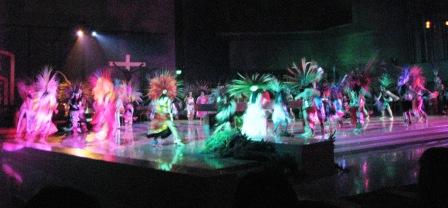

When the Virgin appears to Juan Diego for the third time, he begs her to find a new messenger. She instructs him to continue on his mission and to forget his doubts. She knows the Bishop is waiting to speak with him. “That’s fine, my dear son, you will come back here tomorrow so that you may take the bishop the sign he has asked you for.”
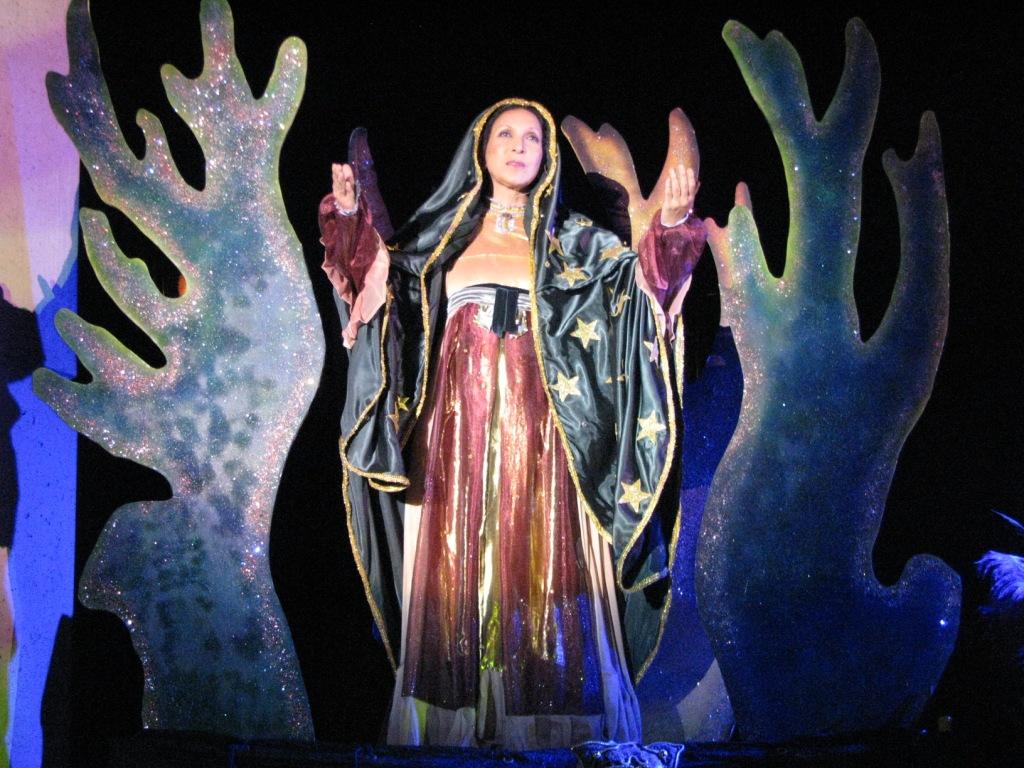

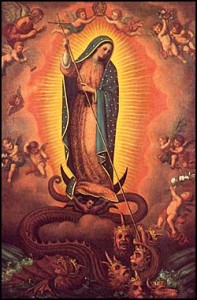

The image of Our Lady of Guadalupe has been associated with Our Lady of the Apocalypse contained in Chapter 12 in Revelations.
The great sign of the Woman served the good angels as a shield and as arms of battle against the evil ones; for at the sight of it, all their power of reasoning weakened and was brought to confusion and silence, since they could not endure the mysteries and sacraments contained in this sign.
CONTINUED – Tonantzin Transforms into Our Lady of Guadalupe (Link)…
Updated 12 December 2024


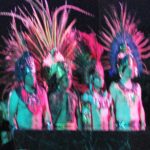

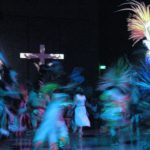

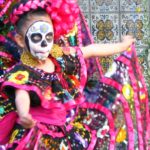
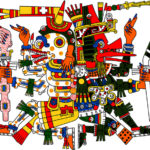
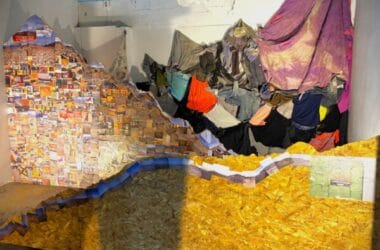





Now doesn’t this just inspire one to make her into a shadow puppet. looking up like the originals in stone~
Pingback: Ep 141 – Louis Albarran and the Faith of Real People – That's So Second Millennium